Quick Tips On Euphonium Maintenance
Daily care and maintenance of your instrument is very important to how well your instrument performs. Watch this quick video below for a few, quick tips on caring for your Euphonium.
Daily care and maintenance of your instrument is very important to how well your instrument performs. Watch this quick video below for a few, quick tips on caring for your Euphonium.
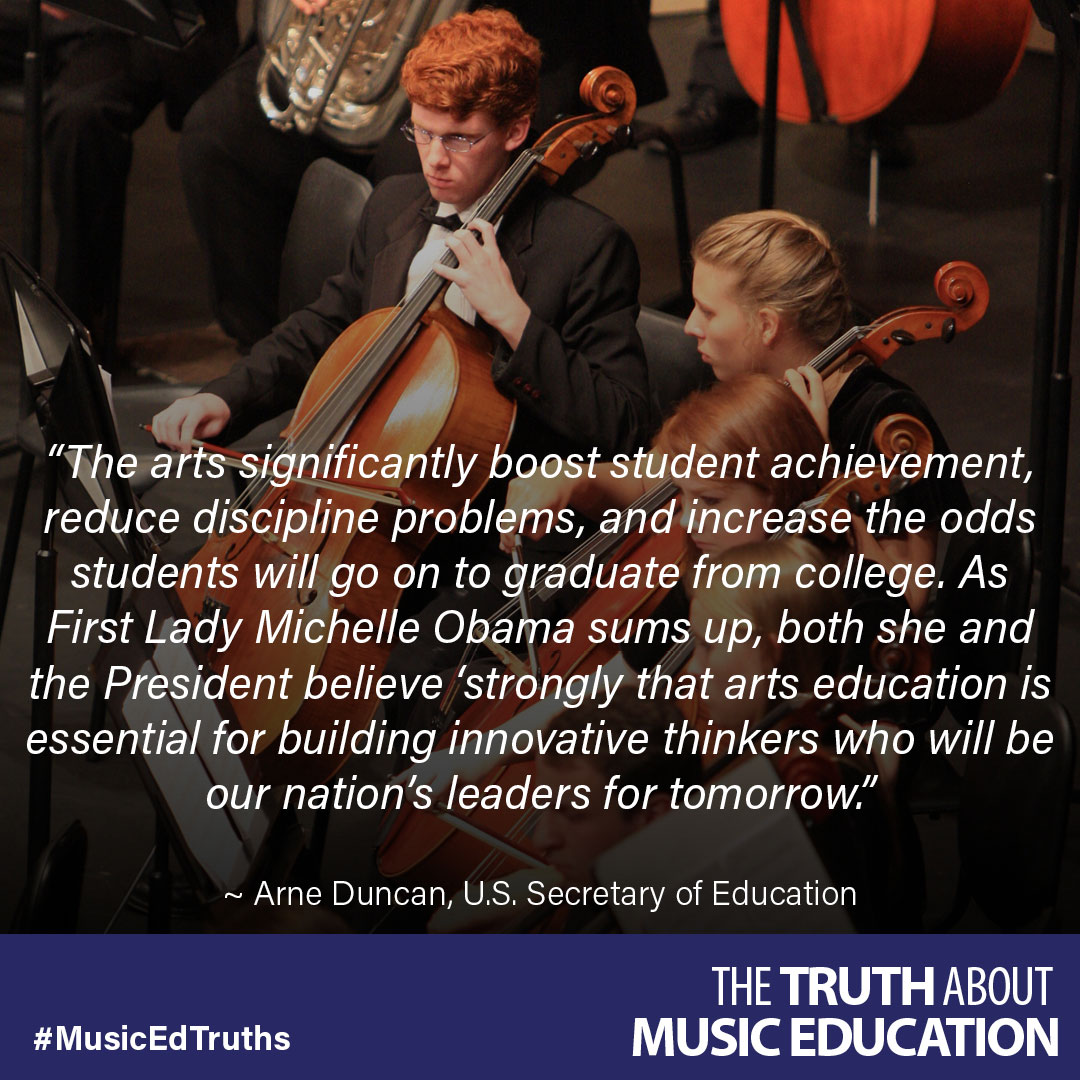
“The arts significantly boost student achievement, reduce discipline problems, and increase the odds students will go on to graduate from college. As First Lady Michelle Obama sums up, both she and the President believe ‘strongly that arts education is essential for building innovative thinkers who will be our nation’s leaders for tomorrow.”
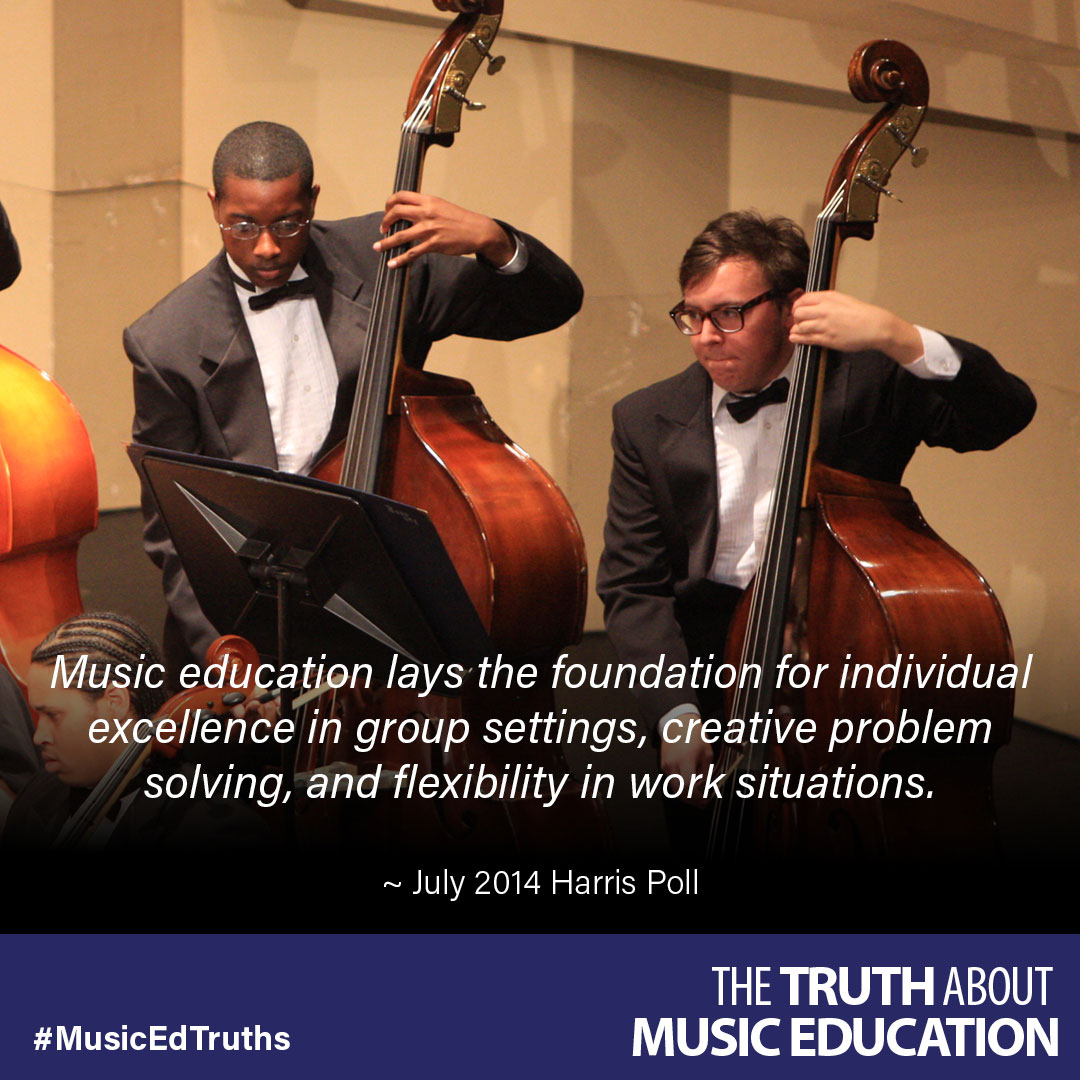
Music education lays the foundation for individual excellence in group settings, creative problem solving, and flexibility in work situations.
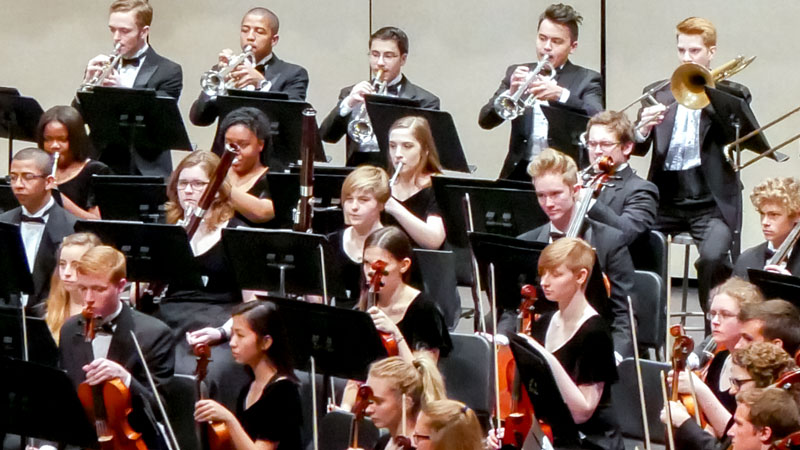
At Paige’s Music, we carry many instrument options. Most instruments fall under a broad category of “student”, “intermediate”, or “professional”.
Student-level instruments designed to be easy to play and easy to hold in the hands of beginning students. Student-level instruments are generally very budget friendly as it is difficult to have clear goals or commitment when your student is just beginning their music education.
Intermediate instruments provide a stepping-stone between student and professional-instruments. Intermediate instruments generally bring several features and design cues from professional instruments down to a more affordable level.
Professional instruments have the highest quality sound and ultimate-expressiveness, the two features essential to professional performance. These instruments are designed to be the very best instrument they can be and are constructed with the highest quality materials and the highest-level artisanship by the most experienced craftsman. These instruments often have advanced features that are only available at the professional level.
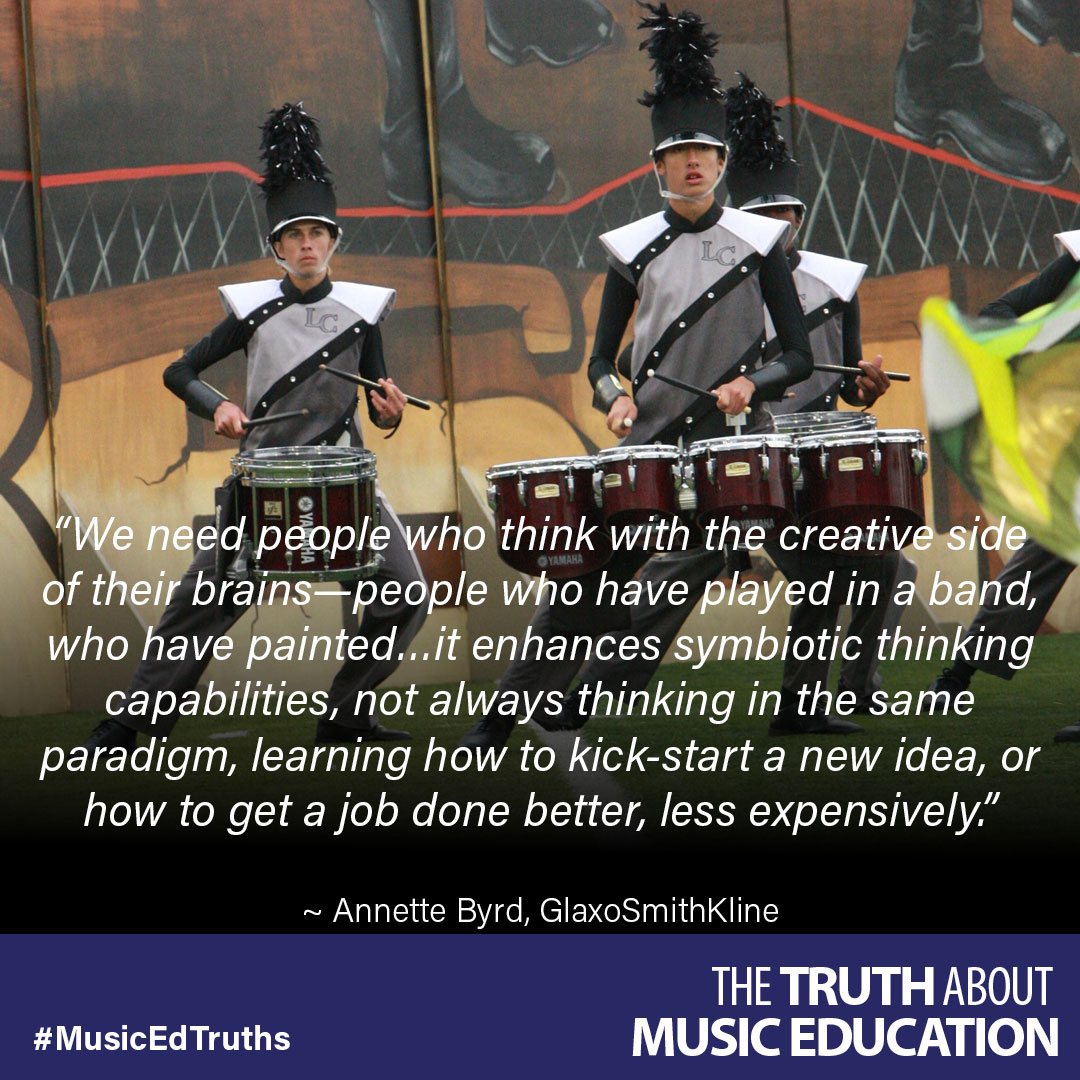
“We need people who think with the creative side of their brains—people who have played in a band, who have painted…it enhances symbiotic thinking capabilities, not always thinking in the same paradigm, learning how to kick-start a new idea, or how to get a job done better, less expensively.”
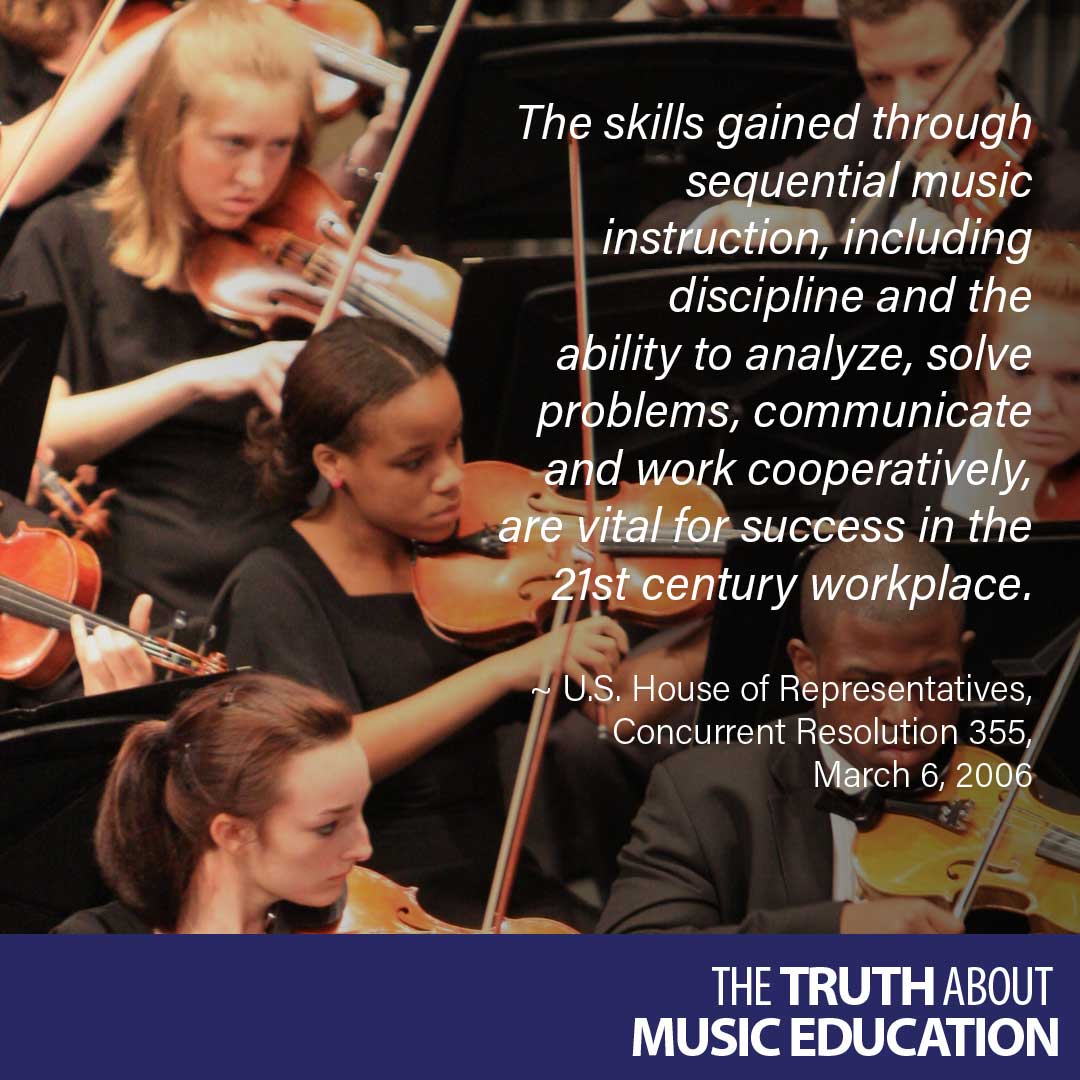
The skills gained through sequential music instruction, including discipline and the ability to analyze, solve problems, communicate and work cooperatively, are vital for success in the 21st century workplace.
This month’s staff spotlight is with Jeremy McQueary. Jeremy is our Vice President of Sales and Marketing and has been with us for just over 19 years. Watch this interview to learn more about him.
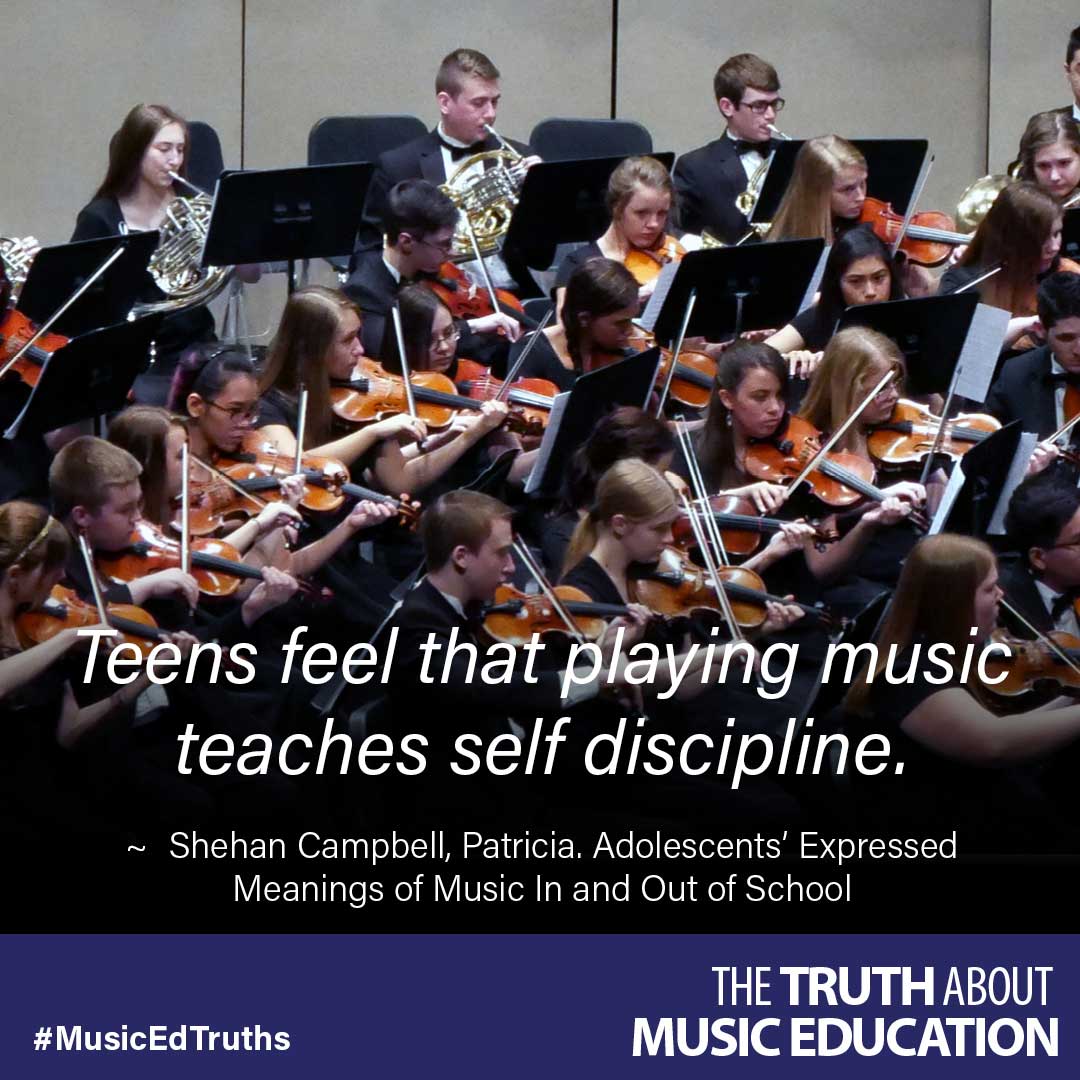
Teens feel that playing music teaches self discipline.